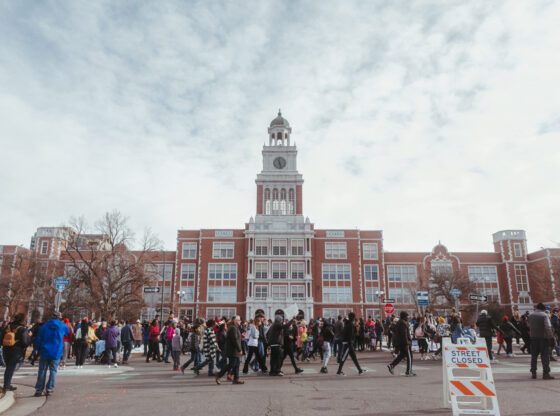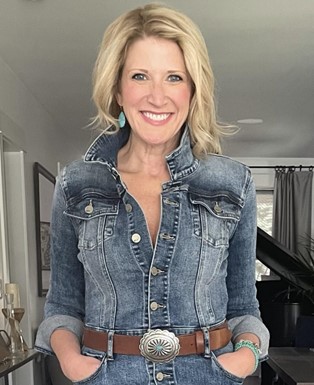 Photo by: Global Washes
Photo by: Global Washes
It takes a special kind of person to admit they miss the slums of Africa. For Renee Botta, who volunteers two months of her summer in Kenya, it only seems natural.
Botta, an associate professor and chair in the Media, Film and Journalism studies department, takes several of her graduate students every year to Nairobi, the capital of Kenya, to help with an ongoing water sanitation and hygiene project called Global WASHES. Botta and her team work in Kibera, the largest slum in the city, to research sanitation issues and educate locals on proper hygiene.
“In Kibera, lack of sanitation is one of the leading causes of death in children under the age of five,” said Botta. “While simple preventative measures like washing your hands may seem obvious to Americans, they are sometimes impossible for locals because of basic problems like affording soap.”
Using her research, it is Botta’s mission to collaborate with locals and form applicable solutions to these problems. For example, part of her hygiene training program last summer introduced a way to create liquid soap that was more cost-effective than standard bar soap, enabling more Kiberans to wash their hands regularly.
This past summer was Botta’s third volunteer trip to Kibera with her graduate students. Peter Van Arsdale, a professor in the Josef Korbel School of International Studies, first approached her about the project in 2009. The Rotary Clubs of Denver Southeast had built sanitation facilities in Kibera and had contacted DU faculty about helping community-based groups there maintain them. With a background in international health communication, Botta was eager to accept.
Her first two summers were spent collecting research, which was meant to determine the locals’ wants and needs, and they finally got to start employing that research last summer.
Throughout the project, local feedback and participation has been crucial, since the program has not only partnered with community members, but also with students from Nairobi University.
“Building relationships within the community is very important,” said Botta. “Some of the locals don’t trust us because other researchers have come in and used them and not followed through on their promises. For the most part they’re grateful, though, and we’re lucky to be working with some great people.”
Among these is a local artist named Bonface, who has drawn over 100 sketches of hygiene practices for the program.
However, Botta is not the only one who has built lasting relationships with the locals.
Several of her graduate students have been inspired to participate in the program more than once – one of them, Kelly Fenson-Hood, has returned all three years. The graduates that accompany Botta are a huge asset to the project, contributing their unique strengths to the group while also pursuing individual research. Many even write their theses on the experience.
For Botta, it is a unique opportunity to work with these students in the real world, outside the classroom.
“It’s been a struggle with DU to allow students to go, because of the liabilities involved,” said Botta. “There are a lot of health and safety risks when you’re working in the slums. But I want to thank the university, because it’s an amazing opportunity and a truly life-changing experience for these students.”
Of course, any life-changing experience can be difficult. According to Botta, a lot of her graduates struggle with feeling guilty after working in Kibera. Not only do they live in an apartment outside the slum while they are there, but return to America afterwards, where life is much easier in comparison. It’s a huge culture shock. But this is apparently only an incentive; Botta said she stays in contact with many of the students after their return, and that almost all of them have expressed an interest in continuing to volunteer abroad.
Right now, Global WASHES is an indefinite project. There is too much to do to determine when they will be able to pull out of Kibera and allow the locals to continue independently. However, even when that day comes, Botta hopes to extend the project to other slums in Nairobi, and even other villages.
If you would like to learn more about the project and their continued efforts in Kibera, you can visit the project blog at www.globalwashes.wordpress.com.










